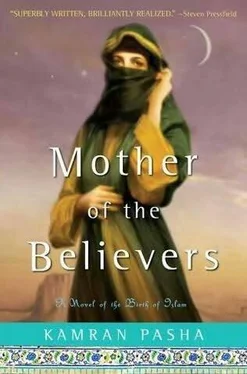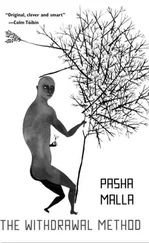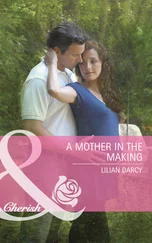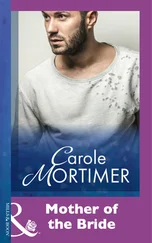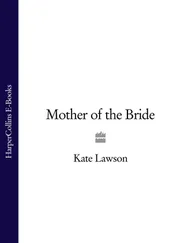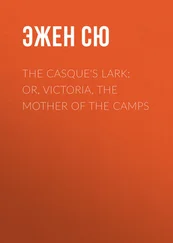And then he offered a gloved hand to her and helped her to her feet.
“Do not fear, daughter of ibn Akhtab,” he said, and she wondered in shock how he knew her name. “I have been sent to offer you sanctuary.”
Safiya was too stunned to ask who had sent him, who could have known that she would be out here in the midst of this deadly fight at this exact moment. But as men from both sides fell about her in a maelstrom of carnage, she decided it was not the time to ask such questions.
As she climbed onto Ali’s horse, she turned a pleading face to the noble warrior, whose green eyes seemed to shine with a light of their own.
“My people…please have mercy on my people.”
Ali leaped onto the saddle in front of her and kicked his horse forward just as a spear struck the spot where he had been standing only seconds before.
“Only God and His Messenger can decide their fate,” Ali said, seemingly unperturbed by the madness of death all around them. He paused and then glanced back at her. “But you can plead their case before him.”
And with those words, Ali took Safiya away from the eye of the storm and rode through the chaos back to the Muslim camp. As Safiya passed through the devastated streets, riding with the man who had defeated her people, she should have felt a rage of emotions-confusion, guilt, shame. But instead there was a quiet serenity even as the cries of the dying echoed all around her.
It was as if some part of her had known that this day would come. That she would leave her father and go to the man he hated the most. It was a destiny that had been written that first day when Muhammad had arrived in Yathrib, when Safiya had refused to condemn him because he sought to remind the sons of Ishmael of the God of their father Abraham. Her empathy for the Arab prophet who had turned the world upside down had created a rift between her and her family, between her and her people, a divide that had grown so large that she no longer felt that she belonged with them. But if she was no longer a Jew, then who was she?
It was a question that she had found troubling and painful, and one that she could never voice aloud with anyone. For the answer was one that she could not face without cutting the final bond between herself and the only world she had ever known. But that world was dead now, consumed by the fires of its own hubris. Her family, her home, her nation were all gone forever. She had lost everything that had mattered to her, everything except the truth of who she really was.
And so it was that when she finally stood before Muhammad, his black eyes looking at her with deep compassion, she understood the role she had been destined to play in the history of nations. She knelt before the man who should have been her enemy and softly said the words that she realized had long been branded into her heart.
“There is no god but God, and Muhammad is His Messenger.”
The battle was over and Khaybar had surrendered. The Jewess named Safiya had served as a mediator between the Prophet and the people of the besieged city, convincing them to lay down their arms on the promise of clemency for the local populace.
With the clash of swords silenced, I helped an elderly Jewish woman step over the grisly carnage in the streets of Khaybar and guided her to the pavilions that had been hoisted for the sick and the injured on both sides. She held me tight, her skeletal fingers cutting into the flesh of my wrist, and whispered her gratitude repeatedly. And then she asked me if I knew what had happened to her son, a young soldier named Nusayb, who had raced from her house to fight the first wave of Muslim infiltrators pouring in through the breached walls. I gently told her that I would find out and reassured her that he was probably with the other prisoners of war. I did not have the heart to tell her that none of the warriors who had thrown themselves at Ali and his men had survived the initial foray.
I left the elderly woman in the care of Umm Salama, who gave her a bowl of water and a small plate of figs. The pavilion smelled of the sickly musk of the dying, a stench that I had come to despise over the past several days, and I quickly turned to exit. Wrapping my cloak against the bitter chill of the morning, I wandered through the devastated alleys as Muslims and Jews worked together to pick up the bodies that littered the streets and haul them away for burial in a cemetery on the outskirts of the oasis.
I stopped before an open field where the prisoners were being held, tied and surrounded by hundreds of Muslim soldiers. A quick round of questions confirmed what I had suspected-the old woman’s son was not among them and had probably already been buried in the mass graves, which were overflowing.
I looked at the center of the field and saw that new graves had been dug here, ditches like the ones in the marketplace of Medina where the Bani Qurayza had been buried. The Prophet’s truce with Khaybar promised amnesty only to the citizens of the town. But the men of Bani Nadir who had taken refuge with them and then incited them to war with the Muslims received no such guarantees. And I could tell from the grim look on the faces of the captives that they knew their fate had been sealed.
As I turned away, I saw my husband approaching with Ali, followed by the Jewish woman Safiya who had helped bring the fighting to an end. She was as I remembered her, tall and statuesque, her bones delicate and perfectly crafted. But her gray eyes were reddened with tears. I saw her look upon her father, Huyayy, who stood proud, exuding dignity even in captivity, and I could not imagine the pain that she must have felt, seeing bound him like an animal for sale in the marketplace.
Ali stepped forward, his black hair glistening like a lion’s mane in the morning sunlight.
“O men of Khaybar, the Messenger has spared your lives because of the pleadings of one whom you cast out,” he said, looking pointedly at Safiya. “The good people of Khaybar are not responsible for the treachery of your guests, and so your prisoners will be set free. And you may retain your lands unmolested upon payment of a tribute of half your annual produce.”
As Ali spoke, I saw the Muslim soldiers move forward and cut the bindings of the prisoners who had been identified as native to the city. The men of Khaybar were stunned to be set free, and many wept and kissed the hands of their captors.
And then Ali turned to face the remaining prisoners, the exiled men of the Nadir whose machinations had led them to this awful place from which there would be no further escape.
“But your brethren among the Bani Nadir have broken every covenant and spread discord through the land,” he said forcefully. “They will be held to account. Such is the command of God and His Messenger.”
I glanced at Safiya and saw tears streaming down her pallid face. And then she ran forward and embraced Huyayy and wept. The guards moved to push her off, but one stern glance from the Messenger caused them to relent. She stood there, holding her condemned father and weeping in his arms, until Huyayy kissed her on the forehead and gently pushed her back.
“I tried to save you…” I heard her say through the chokehold of grief.
Huyayy smiled at her softly, no blame or recrimination in his eyes.
“I know…”
Ali’s men stepped forward, prepared to lead the chief of the Bani Nadir to the grave that would soon be his eternal home.
As the guards gently pulled Safiya away, Huyayy gazed at his daughter. I could see deep regret on his lined face, the look of a man who had realized too late that he had been wrong about everything that truly mattered in life. And then he looked at the Messenger of God, his rival and nemesis who had finally bested him after a decade of bitter conflict.
Читать дальше
